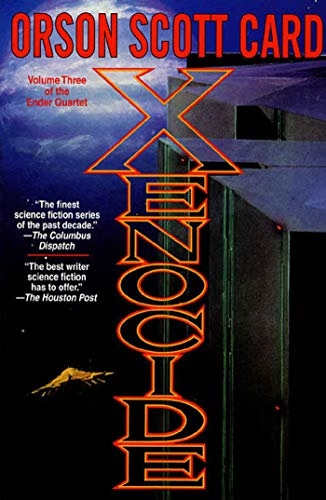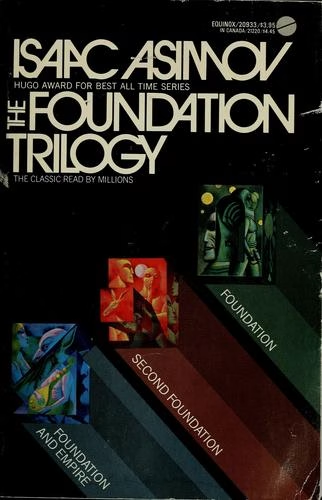Plot Summary
The Conspiracy Against the Messiah
Twelve years after conquering the Imperium, Emperor Paul-Muad’Dib Atreides rules from the desert planet Arrakis, now the center of the universe. However, his reign is not peaceful. A holy war, a Jihad, has swept across the stars in his name, killing billions and installing a fanatical religious bureaucracy, the Qizarate. Paul is trapped by his own myth and his prescient visions, which show him a future of unending stagnation and violence for humanity unless he takes a terrible, personally devastating path.
Unseen by Paul’s prescient sight, a conspiracy forms to dethrone him. Its members represent the old powers he displaced:
* Gaius Helen Mohiam: The Bene Gesserit Reverend Mother who once tested him, now seeks to reclaim the Atreides bloodline and control over the Imperium.
* Edric: A Spacing Guild Navigator, whose own limited prescience shields the conspiracy from Paul’s visions. The Guild is desperate to break Paul’s monopoly on the spice melange, which they need for interstellar travel.
* Scytale: A Face Dancer from the Bene Tleilax, a master of mimicry and genetic manipulation. The Tleilaxu have their own ambitions for creating and controlling a Kwisatz Haderach.
* Princess Irulan: Paul’s consort and wife in name only. Frustrated by his refusal to give her a child (and thus an heir) and loyal to her Bene Gesserit sisters, she is a key, if reluctant, player.
The conspirators’ ultimate weapon is a gift for the Emperor: a ghola—a resurrected clone—of Duncan Idaho, Paul’s loyal friend and swordmaster who died protecting him years ago. The Tleilaxu have revived Idaho’s flesh, naming him Hayt, and conditioned him with Zensunni philosophy and mentat abilities. He is designed to be a psychological poison, a tool to exploit Paul’s love for the original Duncan and ultimately destroy him through a hidden compulsion.
A Gilded Cage
Paul’s life on Arrakis is one of immense power and profound isolation. He is worshipped as a god, but feels like a figurehead, unable to stop the monstrous Jihad his Fremen legions carry out in his name. His relationship with his Fremen concubine, Chani, is the only source of genuine love and solace in his life. However, they have been unable to conceive an heir, a fact that causes Chani great sorrow and creates political instability. Paul knows the truth: Irulan, under Bene Gesserit orders, has been secretly administering contraceptives to Chani. Paul allows this because his prescience shows him that Chani’s death is inextricably linked to childbirth. He chooses to deny his empire an heir to prolong her life.
Meanwhile, Paul’s sister, Alia, now a young woman, struggles with her own unique existence. Having awakened to full consciousness in the womb, she possesses the memories of all her female ancestors, making her a Reverend Mother before her time. Revered as “St. Alia of the Knife,” she is an object of worship and fear, an oracle who feels isolated by her own powers and yearns for a normal life and love.
The Guild ambassador, Edric, formally presents Hayt to the Emperor. Paul, knowing it is a trap but bound by his deep sense of debt and affection for Duncan Idaho, accepts the gift. Hayt’s presence immediately destabilizes the court. His metallic Tleilaxu eyes are unnerving, yet his mannerisms are eerily those of the man Paul knew. When questioned, Hayt candidly admits his purpose: “They intend me to destroy you.” This disarming honesty, a product of his mentat-Zensunni conditioning, makes him an even more complex and dangerous puzzle.
The Trap is Sprung
The conspiracy unfolds through several channels. Fremen traditionalists, resentful of the ecological transformation of Arrakis and the corruption of their culture, are manipulated into a plot. The Face Dancer Scytale, disguised as the daughter of a disgruntled old Fedaykin warrior named Otheym, brings a message to Paul, luring him to Otheym’s home with the promise of information about traitors.
Paul knows it is a trap, a key moment in the terrible future he has foreseen. Bound by the inexorable path of his own oracle, he goes. The conspirators spring their trap not with a simple blade, but with a stone burner—a forbidden atomic weapon. The device incinerates Otheym’s entire district. Paul is caught in the blast’s immediate radiation. He survives, but the specific J-rays of the weapon destroy his eyes, leaving him completely blind.
This act, however, backfires on the conspirators. According to ancient Fremen law, a blind man must be cast out into the desert to die. But Paul, by rigidly adhering to the path laid out by his prescient visions, can “see” perfectly. He moves, speaks, and acts as a sighted man, describing his surroundings with flawless accuracy. To the Fremen, this is the ultimate miracle. His blindness, instead of weakening him, elevates his status to that of a true god. He uses this new power to expose the traitors within his own ranks, including Korba, the high priest of his Qizarate, shattering their conspiracy.
The Fall of the Moon
Paul knows the final tragedy of his vision is at hand. Chani, having adopted an ancient Fremen fertility diet rich in spice, has finally become pregnant. The pregnancy is dangerously accelerated, and Paul knows her death is imminent. He retreats with his closest companions to Sietch Tabr, his old desert home, for the birth.
As the coriolis storms rage outside, Chani gives birth to twins—a boy and a girl. And, as Paul’s vision foretold, she dies in the process. The sound of Paul’s raw grief, his cry of “She is gone,” is the trigger for the ghola’s ultimate compulsion. The conditioning planted by the Tleilaxu surfaces, forcing Hayt to kill the grieving Emperor.
But another, deeper programming takes over: the absolute loyalty of Duncan Idaho to the Atreides. The conflict between the compulsion to kill Paul and his innate need to protect him shatters the Tleilaxu conditioning. In a moment of intense agony, the personality of Hayt is destroyed, and the full memories and consciousness of the original Duncan Idaho are restored.
In the ensuing chaos, Scytale the Face Dancer reveals himself. Holding a knife to the newborn twins, he makes his final offer: a perfect ghola of Chani, with the potential for full memory restoration, in exchange for Paul’s abdication and the entire Atreides empire.
Paul, shattered by Chani’s death, has lost his prescience. The future is once again a terrifying blank. But in that moment, a new vision opens to him—he sees not with his own mind, but through the nascent consciousness of his infant son. This fleeting, shared sight allows him to perceive Scytale’s location. With a single, perfectly aimed throw, Paul kills the Face Dancer with his crysknife.
His purpose fulfilled, Paul Atreides makes his final choice. He is now truly blind, both physically and prophetically. To cement his children’s future and break the myth of his own divinity, he embraces Fremen law. He walks alone and unaided out into the desert, an act that ensures his deification while simultaneously destroying the man. He leaves his empire in the hands of a grieving but resolute Alia, who becomes Regent for his children, Leto II and Ghanima.
Characters
Paul “Muad’Dib” Atreides
The protagonist of Dune is transformed into a tragic figure in Dune Messiah. No longer a hero on a triumphant journey, he is an Emperor trapped by the very powers that gave him the throne. His prescience has become a cage, forcing him to watch a future of bloodshed unfold while steering him down a narrow, agonizing path to prevent an even greater catastrophe. He is weary of the political machinations and the godhood thrust upon him by the Jihad. His primary motivation is no longer power or vengeance but a desperate attempt to protect Chani, the only person he truly loves, from the terrible fate his visions have shown him. His final act—walking into the desert—is not one of defeat, but a calculated sacrifice to secure his children’s legacy and shatter the religious machine built in his name.
Alia Atreides
Paul’s younger sister, “St. Alia of the Knife,” is one of the most complex characters in the story. Born with the consciousness of a Bene Gesserit Reverend Mother, she is an adult mind in a young woman’s body. This makes her a religious icon and a powerful oracle, but also isolates her profoundly. She struggles with the weight of her ancestral memories and a longing for normalcy and love that her holy status denies her. She is fiercely loyal to Paul, but also recognizes the dangerous paradox of their rule. Her journey in Dune Messiah is one of coming-of-age under impossible circumstances, culminating in her acceptance of the Regency and the immense burden of the Atreides empire.
Chani
Paul’s Fremen consort and the emotional heart of the novel. Her motivations are simple and pure: she loves Paul and wants to give him an heir. She is fiercely independent and deeply connected to the old Fremen ways, viewing the politics and luxury of the Imperial Court with suspicion. Her struggle with infertility (secretly caused by Irulan) and her eventual pregnancy drive the central plot and force Paul to confront the terrible choices dictated by his visions. Her death is the story’s ultimate tragedy and the catalyst for the final unraveling of Paul’s reign.
Hayt / Duncan Idaho
The Tleilaxu ghola of Duncan Idaho is the novel’s central enigma. He begins as Hayt, a tool of the conspiracy, programmed with Zensunni philosophy and a mentat’s logic, but also with a hidden compulsion to destroy Paul. Throughout the story, he is a walking paradox: his body is Idaho’s, but his mind is not. He struggles with a yearning for an identity he cannot remember. His transformation back into Duncan Idaho at the climax is a powerful exploration of memory, love, and loyalty. It is an act of supreme loyalty—the refusal to kill Paul—that breaks his conditioning and resurrects his true self, proving that identity is more than just flesh or programming.
Princess Irulan
Paul’s wife and a member of the conspiracy, Irulan is portrayed with far more depth and tragedy than in the first novel. She is a pawn of the Bene Gesserit, carrying out their orders to prevent a Chani-born heir, yet she is also a woman trapped in a loveless political marriage, denied the fulfillment she was raised to expect. She is a historian, chronicling Paul’s reign even as she conspires against it. By the end, witnessing Chani’s death and Paul’s sacrifice, her loyalties shift. She renounces the Bene Gesserit and dedicates herself to protecting Paul’s children, finally finding a purpose beyond political scheming.
Scytale
The primary antagonist, a Tleilaxu Face Dancer who can alter his appearance at will. Scytale is not a simple villain; he is a representative of the amoral, scientific Bene Tleilax. His goal is not just to kill Paul, but to prove that the Tleilaxu can manipulate and control even a Kwisatz Haderach. His offering of a Chani ghola is the ultimate temptation, a demonstration of Tleilaxu power over life and death. He embodies the theme of genetic manipulation and the dangerous pursuit of power through technology devoid of morality.
Core Themes
The Deconstruction of the Hero
Dune Messiah serves as a deliberate dismantling of the hero myth established in Dune. Paul, the triumphant messiah, is shown to be a prisoner of his own success. His victory has unleashed a galactic jihad that is far more monstrous than the tyranny of his predecessors. The novel argues that charismatic leaders, even those with good intentions, can become focal points for humanity’s worst impulses. Paul’s godhood is not a blessing but a curse that leads to stagnation, fanaticism, and unimaginable suffering, proving the old Fremen warning: “No more terrible disaster could befall your people than for them to fall into the hands of a Hero.”
Prescience as a Trap
Paul’s oracular vision, his greatest weapon in Dune, becomes his prison in Dune Messiah. The ability to see the future does not grant him freedom; it locks him into a deterministic path. Every choice he makes is constrained by the knowledge of what will be, forcing him to navigate a narrow corridor of “safe” futures to avoid even greater catastrophes. This turns his life into a “hideous, choreographed ritual,” stripping him of free will and making him a slave to the future he perceives. The novel explores the philosophical horror of knowing the future and being powerless to truly change it.
Identity, Memory, and Resurrection
The character of Hayt, the Duncan Idaho ghola, is the primary vehicle for exploring the theme of identity. Is he Duncan Idaho simply because he has his flesh? Or is identity rooted in memory and experience? The Tleilaxu treat life as a mutable substance, something to be engineered and programmed. The climax, where Idaho’s original consciousness is resurrected through an act of supreme emotional conflict, suggests that identity is something deeper than either genetics or conditioning—it is forged in loyalty and love.
The Conflict Between Love and Duty
At its core, Dune Messiah is a tragedy about Paul’s impossible choice between his duty as an emperor and his love for Chani. His prescience informs him that his duty to steer humanity away from extinction requires Chani’s death. For twelve years, he defies this fate out of love, allowing Irulan to poison Chani to prevent the birth that will kill her. This internal conflict paralyzes him, showing that even a man with the power of a god can be broken by the fundamental conflict between the personal heart and the public good.
Plot Devices
The Ghola
The ghola is the central narrative device of the novel. It allows for the physical return of a beloved dead character, Duncan Idaho, but in a new and menacing form. Hayt is a walking, talking plot device: he is the conspirators’ weapon, a philosophical puzzle for Paul, a romantic interest for Alia, and ultimately, the catalyst for the novel’s climax. His existence raises fundamental questions about identity and what it means to be human, and his final transformation is a key thematic resolution.
The Shielded Conspiracy
The conspiracy’s ability to remain hidden from Paul’s all-seeing prescience is a crucial plot device. This is achieved through the presence of the Guild Navigator Edric, whose own prescience creates a “blind spot” in time that Paul cannot penetrate. This limitation on Paul’s power is essential for creating narrative suspense and allows the conspirators’ plot to advance, forcing Paul to rely on conventional intelligence and deduction rather than his oracle.
The Stone Burner
This forbidden atomic weapon serves as the story’s major turning point. Its use signifies the ultimate desperation of the conspirators, willing to violate the Great Convention and risk universal retribution to eliminate Paul. The weapon’s primary effect—blinding Paul—is deeply ironic. It physically strips him of his sight, only to elevate him to a higher level of divinity in the eyes of his followers when he proves he can “see” through his visions alone. This act sets the stage for the novel’s final act.





